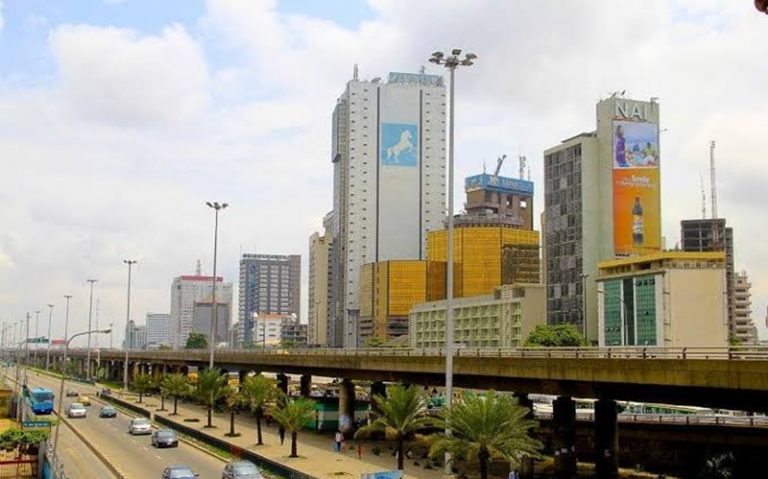
Nigeria’s Business Performance Index (BPI) has recorded its fifth straight month of growth in 2025, pointing to a continued — albeit cautious — rebound in private sector activity.
The index for May 2025 stood at +9.78, showing a modest expansion in business conditions, though down from the +12.29 recorded in April. The performance marks a continuation of the positive trajectory seen since January, which began with a BPI of +3.24 and has climbed gradually despite deepening macroeconomic and structural constraints.
The data, published in the latest NESG-Stanbic IBTC Business Confidence Monitor (BCM) released in June 2025, is captured under the title “Enduring Infrastructure and Financial Conundrum Constraint Business Growth.” The report paints a mixed picture — one that reflects increasing optimism in some sectors but signals a slow, uneven recovery marked by persistent bottlenecks in power supply, financing, and security.
Register for Tekedia Mini-MBA edition 19 (Feb 9 – May 2, 2026).
Register for Tekedia AI in Business Masterclass.
Join Tekedia Capital Syndicate and co-invest in great global startups.
Register for Tekedia AI Lab.
Sectoral Breakdown: Manufacturing Gains, Agriculture Contracts
Sector-specific performance in May showed that Non-manufacturing maintained the strongest momentum, recording an index of +22.19. This was followed closely by Manufacturing (+14.43), Trade (+14.13), and Services (+4.49). While these sectors sustained positive territory, all except manufacturing experienced a slowdown from April, highlighting emerging fatigue across business operations.
The Manufacturing sector was the only segment to resist the downward trend. Its resilience was attributed to relatively stable demand, ongoing capacity utilization, and the adaptive strategies of producers in the face of rising costs and infrastructural hurdles.
By contrast, the Agriculture sector posted a negative index of -1.77, worsening from April’s already weak figures. Respondents cited climate change-related disruptions as the primary factor: erratic rainfall, prolonged droughts, and shorter wet seasons have compromised planting and harvest cycles. These climate stressors have further exposed the structural fragility of Nigeria’s agricultural value chain, which already suffers from limited mechanization, weak irrigation infrastructure, and poor access to financing.
Sub-Indices Indicate Slowing Momentum and Investor Apathy
While the overall index remained positive, a deeper look at sub-indicators reveals a softening in business optimism. The cost of doing business fell to +38.54 in May from +51.79 in April, showing that operational pressure has increased — especially in areas such as energy, logistics, and rent.
One of the most alarming shifts was in investment confidence, which plunged to -25.61. This sharp fall suggests that business leaders are holding back on long-term capital commitments due to heightened uncertainty and a lack of faith in near-term policy direction. Similarly, price level indicators dropped to -18.15, hinting at either lower sales margins or reduced pricing power across several industries, possibly linked to weaker consumer demand amid inflation.
Despite these setbacks, there were improvements in production levels, cash flow, operating profits, and employment, suggesting that businesses are finding ways to stay afloat — even as their margins narrow and future prospects dim.
Constraints of Power, Finance, Insecurity, and FX Crunch
The ranking of business constraints in May remained largely unchanged from previous months. Inadequate power supply continues to rank as the most severe impediment to growth. Respondents across sectors complained of frequent outages, excessive dependence on diesel and petrol generators, and surging energy costs that are eating into profits.
Access to finance also remains a structural bottleneck. While interest rates remain elevated, businesses — especially small and medium enterprises — face difficulty in securing working capital or expansion credit from banks, which continue to tighten lending conditions amid macroeconomic uncertainty.
The cost of commercial property in major cities such as Lagos, Abuja, and Port Harcourt was flagged again as a major operational strain. High lease rates, coupled with taxes and service charges, have forced some businesses to scale down physical operations.
Currency instability and foreign exchange scarcity further complicate the outlook for import-dependent firms. Many companies reported difficulties in sourcing FX for raw materials, machinery, and inputs, resulting in delays, rising production costs, and shrinking inventories.
A key drag on economic activity is insecurity, which remains acute in the North East, North West, and parts of the Middle Belt. Armed banditry, kidnapping, and communal violence have disrupted supply chains and deterred investment. Several firms, particularly those in logistics, agribusiness, and retail, reported that deteriorating security had made operations costlier and less predictable.
The inconsistent policy environment also drew criticism. According to the BCM report, frequent regulatory changes, lack of clarity on fiscal direction, and mixed signals from monetary authorities are undermining long-term business planning.
Fragile Growth Amid Deepening Risks
The continued rise in the Business Performance Index is encouraging but deceptive. Beneath the positive headline figure lies a fragile recovery that remains vulnerable to systemic threats. The Nigerian Economic Summit Group (NESG), in its commentary, warned that without urgent structural reforms, the private sector may not sustain its current growth streak.
With a nationwide unemployment rate still high and inflation continuing to erode purchasing power, analysts caution that improved performance in BPI must be viewed in the context of declining investment, limited productivity gains, and persistent uncertainty.
Outlook for the Rest of 2025
As the second half of the year approaches, Nigeria’s business environment faces a test of resilience. If government interventions — particularly around power sector reforms, improved credit support for MSMEs, and a coordinated security response — are not accelerated, the private sector’s ability to drive growth may falter.
For now, however, the five-month streak offers a cautious sign that businesses are adapting and staying afloat, even in one of the most challenging economic landscapes Nigeria has seen in years.



